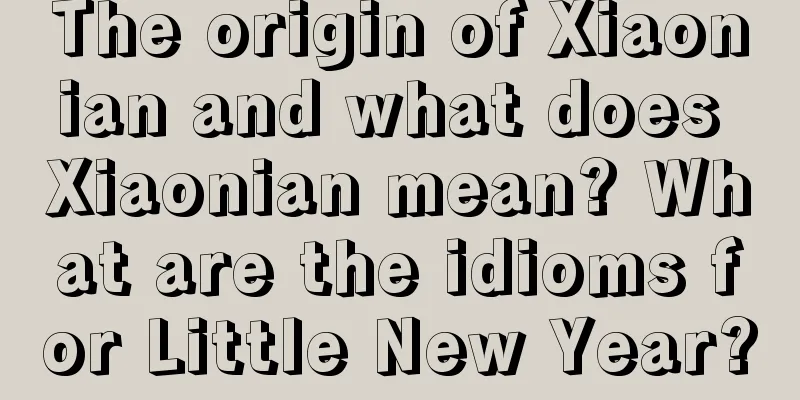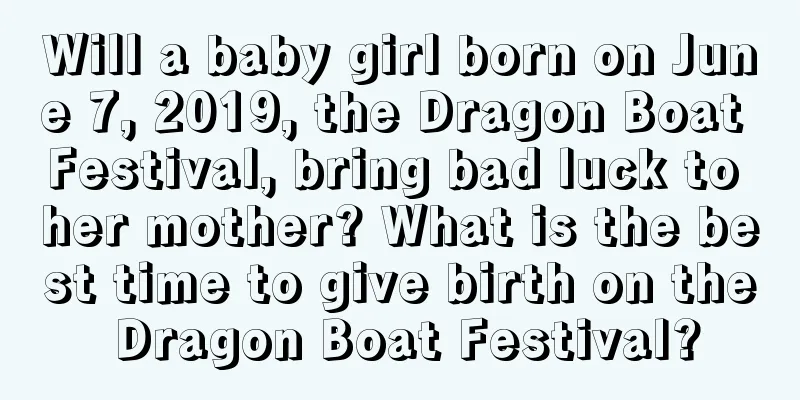The origin of Xiaonian and what does Xiaonian mean? What are the idioms for Little New Year?

Xiaonian is a traditional festival in my country. The time of Xiaonian varies in different places. This day is usually regarded as the beginning of the busy new year. Everyone is ready to have a good new year with a clean mind. So what is the origin of Xiaonian and what does Xiaonian mean? What are the idioms for Little New Year?The origin of Xiaonian and what does Xiaonian mean?Xiaonian refers to the festival when the Han Chinese people worship the Kitchen God, which is also the day when they send the Kitchen God to heaven to report. It generally refers to the 23rd day of the twelfth lunar month every year (but it is not specific to this day in all parts of the country), and the Chinese New Year celebrations begin on that day.When talking about "Little New Year", we have to start with the Kitchen God, because "Little New Year" is closely connected with the Kitchen God. The Kitchen God is the god of food in ancient mythology and legends. His full title is East Kitchen God of Life Jiuling Yuanwang Dingfu Shenjun, commonly known as the Kitchen God, Kitchen Father, and Kitchen Lord. Ever since humans stopped eating raw meat and drinking blood and invented cooking with fire, with the development of social production, the stove has gradually become closely related to people's lives and has a long history. During the Xia and Shang dynasties, the Kitchen God became a great god revered by the people, and worshiping the Kitchen God became an important part of folk activities. Legend has it that the Kitchen God was originally a commoner named Zhang Sheng. After marrying a wife, he spent his days in debauchery and lost all his family fortune, and was reduced to begging on the streets. One day, he went to beg at his ex-wife Guo Dingxiang's house. He was so ashamed that he dived under the stove and burned to death. When the Jade Emperor found out, he thought that Zhang Sheng had changed his mind and was not completely bad. Since he died at the bottom of the pot, he was named Kitchen God. He was required to report to heaven on the 23rd and 24th of the twelfth lunar month every year and return to the bottom of the pot on New Year's Eve. Ordinary people feel that the Kitchen God must be respected because he has to report to Heaven. Therefore, the Han people have the "Little New Year" of worshiping the kitchen god on the 23rd and 24th of the twelfth lunar month, praying for peace and prosperity in the coming year. What are the idioms for Little New Year?When I turn twenty-one, others are happy but others are sighing. When I turned twenty-two, I had nothing to do and nothing to do. When I reach twenty-three, I get scared the more I think about it. On the 24th of the year, I have no idea what to buy for the New Year. When I reach the age of twenty-five, I feel even more miserable as the new year begins. When I reach the age of twenty-six, the year-end is so difficult.On the thirteenth, eat sticky sugar melons; on the twenty-fourth, clean the house; on the twenty-fifth, grind grain; on the twenty-sixth, buy meat; on the twenty-seventh, slaughter chickens; on the twenty-eighth, make the dough rise; on the twenty-ninth, steam buns; on the thirtieth, twist your body at night; and on the first day of the New Year, bow your hands. Three, six, nine, go outside. Two, five, eight, it's time to go home, dumplings on the horse and noodles on the horse, buns on the feet and noodles on the feet. On the 23rd, the Kitchen God goes to heaven; on the 24th, he writes big characters; on the 25th, he beats drums; on the 26th, he stews meat; on the 27th, he slaughters roosters; on the 28th, he makes noodles rise; on the 29th, he burns incense; on the 30th, he sits all night; and on the first day of the New Year, he walks on the streets. On the twenty-third, sticky sugar melons are made; on the twenty-fourth, the house is swept; on the twenty-fifth, the windows are pasted; on the twenty-sixth, meat is stewed; on the twenty-seventh, the rooster is slaughtered; on the twenty-eighth, the noodles are fermented; on the twenty-nineth, the wedding invitation is sent; and on the thirtieth, there is a night of noise all night long. On the first day, eat dumplings; on the second day, eat noodles; on the third day, bring boxes home (make money); on the fourth day, eat pancakes and scrambled eggs; on the fifth day, make dumplings (and make figurines). The meaning of the saying "officials are three, civilians are four, and ships are five"In ancient times, there was a saying that "officials celebrate the New Year on the 23rd, common people celebrate the New Year on the 24th. Among them, boatmen who make a living on the water postponed their celebration to the 25th.The fact that different parts of my country celebrate the Little New Year on different dates is actually related to this. This is because the north has been the political center of China for a long period of time in history. Influenced by the official atmosphere, people in the north usually celebrate the Little New Year following the officials, and among the people, it is also common to celebrate the Little New Year on the 23rd day of the twelfth lunar month. The southern region was far away from the political center and was not affected, so people regarded the 24th day of the twelfth lunar month as the Little New Year. Residents living along lakes and seas have long maintained the tradition of celebrating the Little New Year on the 25th day of the twelfth lunar month. It is said that officials and civilians no longer celebrated the Little New Year on the same day starting from the Qing Dynasty. Starting from the Yongzheng period of the Qing Dynasty, gods would be worshipped in the Kunning Palace on the 23rd day of the twelfth lunar month every year. The emperor was quite frugal, so in order to save money, he also worshipped the Kitchen God. Later, the royal family and nobles also followed suit and worshipped the Kitchen God on the 23rd day of the twelfth lunar month. As a result, the custom of celebrating the Little New Year on the 23rd day of the twelfth lunar month became popular among the people, and there was also a distinction between officials and civilians celebrating the Little New Year on different days. |
<<: How is the beginning of spring calculated? Is the beginning of spring on February 3rd in 2021?
Recommend
Is October 18th of the lunar calendar in 2018 a suitable day to start renovation? How's your fortune for the day?
On the day when the renovation starts, a simple ce...
Is it okay to have sex on the 26th day of the first lunar month in 2020, when it is Rain Water? What solar term does Rain Water reflect?
Introduction: There are also rules for having sex....
What are the solar terms in April of the lunar calendar in 2021? Introduction to festivals in April of the lunar calendar
The solar terms are a product of China. The emerge...
What trees are good for Feng Shui in residential courtyards?
Introduction: Many people plant flowers, plants a...
Is the tenth day of the fourth lunar month in 2022 an auspicious day to propose? How about proposing on the same day?
Every day in the lunar calendar is different, but ...
January 6, 2021, is it okay to go back to my parents' home one day after Xiaohan? January 6, God of Wealth's lucky position
Introduction: It is generally necessary to choose ...
Can I pray on the sixth day of the third lunar month in 2022? Is it an auspicious day for praying?
The time to pray needs to be chosen. It is not goo...
Is the 18th day of the twelfth lunar month suitable for moving and setting up beds in 2020? The lucky position of the God of Wealth on January 30, 2021
Introduction: According to traditional customs, it...
The New Year is approaching, what should we pay attention to during the twelfth lunar month cleaning?
Introduction: In the blink of an eye, December is...
When is Mother's Day 2018? Mother's Day greetings recommendation
Every year Mother's Day is a holiday for peopl...
What are the do's and don'ts on the fourth day of the second lunar month in 2018?
Spring is a season of vitality and revival, but t...
Where is the auspicious position for the Lantern Festival to bring good luck in 2017?
Introduction: Do you know what the God of Happines...
Is it a good fate for a boy born on the fourth day of the fifth lunar month in 2018?
Children are the hope of a family. Parents all hop...
What is the fate of a rat person born on New Year’s Day? Is New Year’s Day 2019 a good time?
New Year’s Day is here. What is the fate of those ...
Is it a good idea to travel far away on Labor Day, March 27th of the lunar calendar in 2019? What is the hexagram for today?
Introduction: In our country’s traditional culture...









